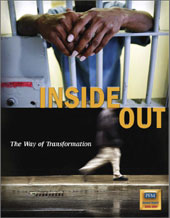Key U.S. Supreme Court decisions and their place in today's criminal justice system
Page 1 of 1
 Key U.S. Supreme Court decisions and their place in today's criminal justice system
Key U.S. Supreme Court decisions and their place in today's criminal justice system

Where are they now?
Individual rights are tested in the American criminal justice system perhaps more than in any other segment of society. The U.S. Supreme Court is charged with weighing and interpreting our Constitutional rights and balancing them against the state's mission to protect public safety. No small task. In fact, over its 220-year history, the court has molded the procedures and protections of our criminal justice system from the guidance of just a few words in the Bill of Rights. Predictably, many of these rulings have been controversial.
Below are four of the 20th Century's most important criminal justice-related court rulings, and an update on where those decisions are today. The first three were decided by the Warren Court (under Chief Justice Earl Warren), a period during which the court expanded the rights of individuals, including criminal defendants.
Gideon v. Wainwright (1963)
found that states must provide legal counsel to indigent, or poor, defendants. Before this decision, the state only provided counsel to defendants facing the death penalty.
The right to a public defender is, of course, a staple of our criminal justice system today.
But how effective is it? Public defenders today are overburdened and underpaid and the Constitution doesn't say anywhere they should be granted resources by the state equal to those of their opponents, so they often lack the funds to help them build a case; many lawyers and legal observers believe that you get the justice you pay for.
Gideon has been effective, and all criminal defendants in our country certainly have the right to counsel, but there's no guarantee that the public defender will have time or resources to adequately serve the client.
Brady v. Maryland (1964)
found that the state must share any potentially exculpatory evidence with defense attorneys.
The role of prosecutors is to seek the truth, and to seek convictions and sentences fitting the crime committed by defendants. Historically, police have been more closely aligned with prosecutors than with defense attorneys, creating an imbalance of investigative resources in the system to the detriment of the defendants.
The Brady decision attempted to level the playing field by formalizing the constitutional requirement that police and prosecutors must share all evidence uncovered during an investigation with the defense. Of course, allegations of "Brady violations" are rampant today, and some police departments have been found creating two sets of reports - one for the internal investigation and another to share with defense.
It is impossible for any law to be followed 100% of the time, however, and Brady is widely regarded as an effective protection for criminal defendants.
Miranda v. Arizona (1966)
required law enforcement officers to inform suspects of their rights to counsel before questioning them. This decision came during a time that questionable coercive interrogation tactics were under scrutiny. Although law enforcement agencies protested loudly at the decision, the Miranda rights are waived by almost all defendants today.
And in decisions since Miranda, lower courts and the Supreme Court have weakened the law significantly, allowing statements at trial that were given before Miranda rights were read because the statements were "voluntary" and brushing aside challenges in cases where defendants didn't understand their rights, didn't sign a waiver, and say they asked for a lawyer and didn't get one.
Batson v. Kentucky (1986)
prohibited racial discrimination in the selection of jurors. James Batson, an African-American man, was convicted by an all-white jury in Kentucky of second-degree burglary and receipt of stolen goods.
During jury selection, prosecutors had struck the only four African-Americans in the jury pool, and Batson's attorneys appealed on the grounds that this violated Batson's Fourteenth Amendment rights to equal protection and a fair jury trial.
The court held that prosecutors and defense attorneys must have a "neutral" reason for striking jurors and that race-based jury selection was unconstitutional.
Of course, today attorneys on both sides of the courtroom still strike potential jurors on the basis of race, and then just give creative reasons available should their strikes be challenged.
While Batson was a landmark decision, it's rarely a factor in courtrooms today because it's nearly impossible to prove.
 Similar topics
Similar topics» What You Can Do to Reform the Criminal Justice System
» What You Can Do to Reform the Criminal Justice System
» New York Times editorial: Reviewing Criminal Justice
» A Primer on Criminal Justice
» Criminal justice by the numbers
» What You Can Do to Reform the Criminal Justice System
» New York Times editorial: Reviewing Criminal Justice
» A Primer on Criminal Justice
» Criminal justice by the numbers
Page 1 of 1
Permissions in this forum:
You cannot reply to topics in this forum|
|
|
